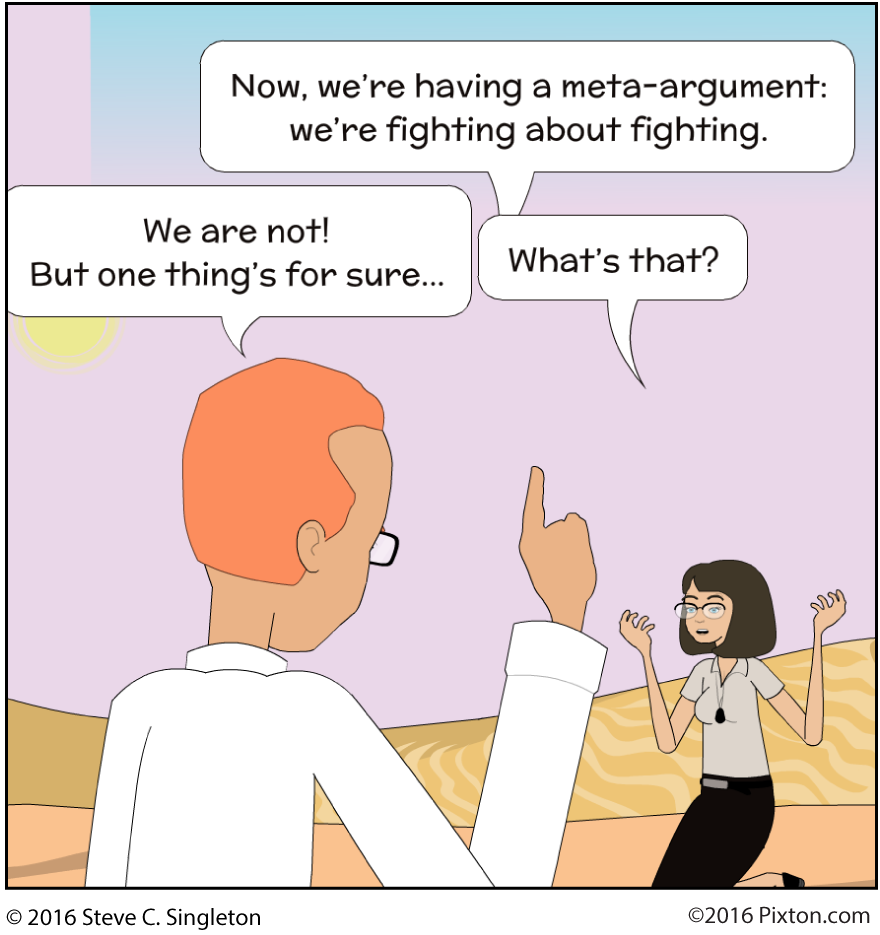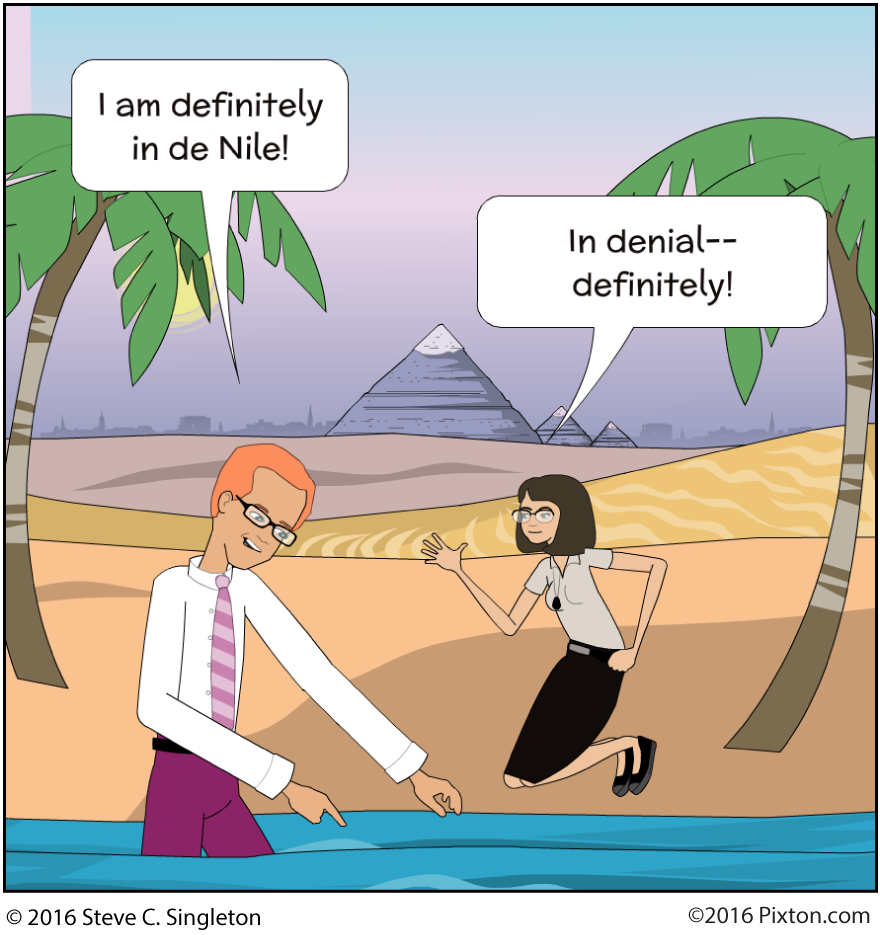Five questions to test whether you’re in denial: Diagnosis is the first step in removing spiritual blindness
What is the problem?
First-century Pharisees saw themselves as guides for the blind, lights for those in the dark, instructors of fools, and teachers of little children (see Romans 2:19-20). They were quite unaware that they were blind guides, that the light within them was darkness, that they themselves were the fools, and that little children had much to teach them. It’s fair to say that they were in denial.
Those of us who have been Christians for a long time may sometimes step into the same muddy river. We can become unaware of our spiritual complacency, confident that we know the Scriptures and can interpret them properly. Please permit me to suggest five questions to ask yourself to determine whether you stand safely on the bank or are floundering neck-deep in a river of denial.
1. Are you unaware you are doing anything wrong?
In itself, this is not a foolproof question, but it is a reasonable starting point. If you are unaware that you are doing anything wrong, the possibility exists that you are seriously mistaken. Spiritual pride can create within us serious blind spots that can grow larger with time. If we can admit that this is possible, we can begin to seek new measures for our behavior beyond those we have been using.
2. Do others see your actions differently?
You probably find it difficult to be objective about your own behavior. Like the man who is unaware that his shirttail hanging out or the woman whose skirt gets caught in her pantyhose, we may need someone else’s perspective. Actions or attitudes hiding in our blind spots may be obvious to someone else. If they are courageous enough to mention the problem to us, we should grant that their motivation may be kindness rather than deliberate hyper-criticism.
3. Must you resort to excuses and rationalizations?
If you find yourself attempting to explain away your behavior because of extenuating circumstances, the stress you’ve been going through, or your frustration at trying to cope with difficult circumstances, it may be time to grant that you’re doing something wrong. Excusing the behavior or attempting to transform it into understandable conduct because of rationalizations does not improve the way those deeds look to other people.
4. Do you feel a “prick” when reading certain passages?
The spiritual power the Scriptures have to prick our hearts when we are wrong often still operates even when our faults seem invisible. When we feel that sharp and surprising pain, we can usually assume confidently that God’s Word is right and we’re wrong. It is “alive and active, sharper than any double-edged sword; it penetrates even to dividing soul and spirit, joints and marrow. It judges the thoughts and attitudes of the heart” (Hebrews 4:12). In most cases, we feel guilty because we are guilty.
5. Are you willing to be self-critical?
It does take humility to admit that you could be wrong. Recognizing this possibility, we should continuously cultivate a humble attitude, being willing to admit our fallibility. The words, “I may be wrong, but…” should come easily to us if we are serious about correcting our mistakes quickly.
If you don’t know where you are, you’ll never reach your destination.
It may be painful to shatter the illusion of infallibility that we may want to believe, but if you need to repent, if you need to face up to bad habits or take an in-depth look at your own sin, isn’t it better to confess it than to continue in spiritual blindness? The Nile is a dangerous place to keep standing; it is full of crocodiles. And spiritual crocodiles no less deadly infest denial.
Want to go deeper?
Read Matthew 23, trying to hear the voice of Jesus Christ, not as a one of anger, but as one of grief. How does Jesus, as a loving friend would do, try to conduct a spiritual intervention? Which of His words are purposefully aimed at breaking through the illusion of perfection and infallibility that the Pharisees conjured around themselves?
Also explore John 8:31-59, another attempt of Jesus to break through to the Jewish leaders. Much is negative in these verses, but at one point Jesus does paints a bright, color-saturated future outcome for these opponents. Find that positive moment and take some time to reflect on it for your life.






